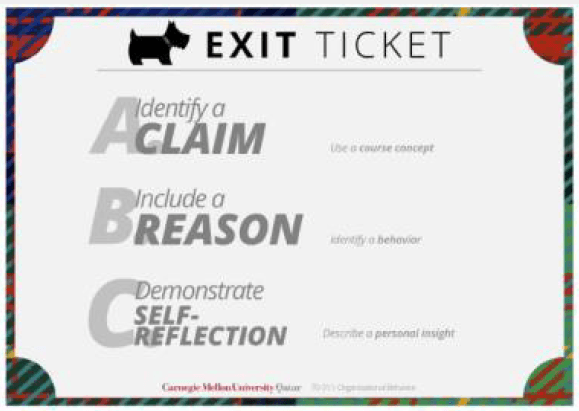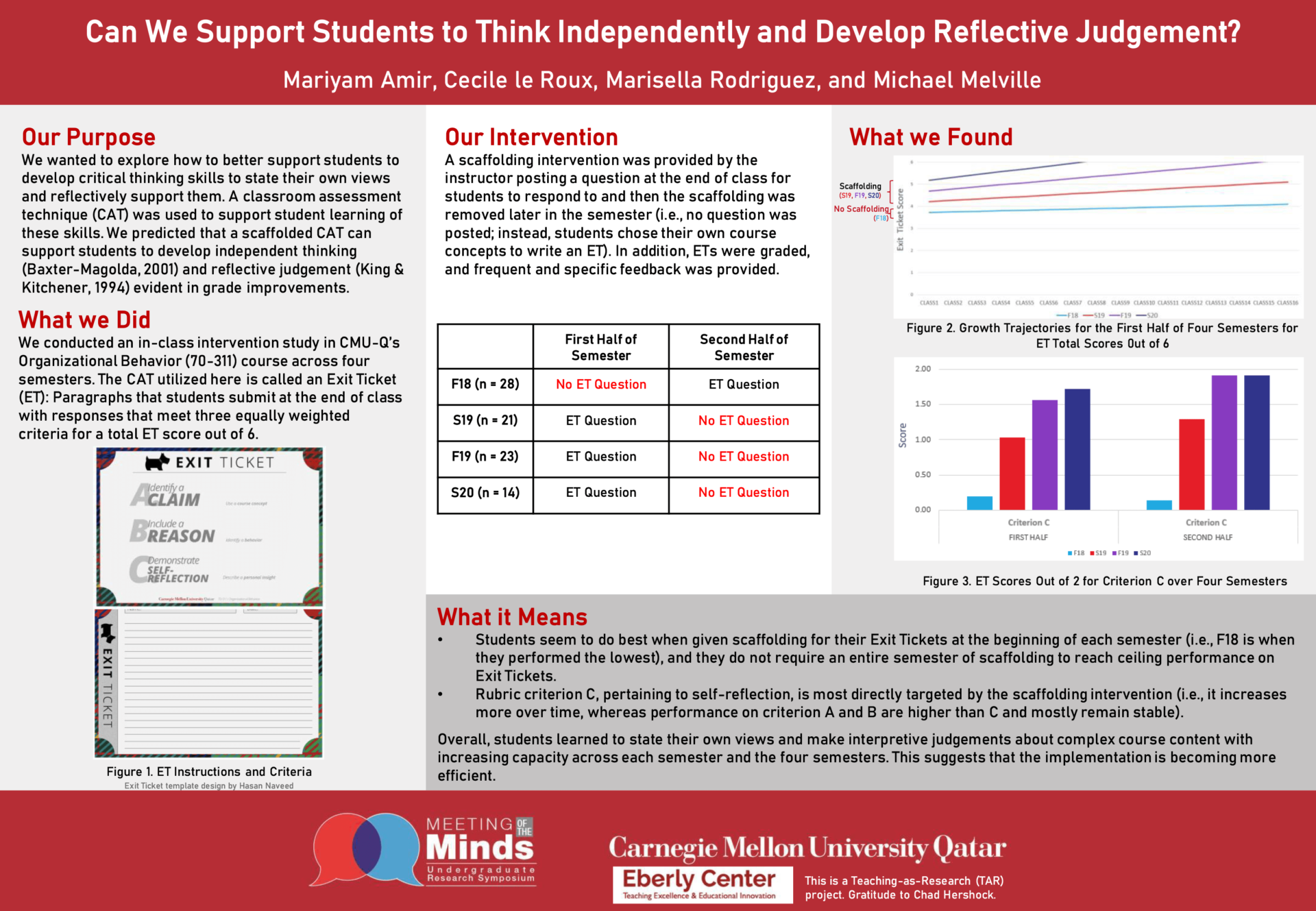This research explores the impact of a scaffolded classroom assessment technique (CAT) on student performance. CATs assist instructors in knowing what students are learning and how well they are learning it (Angela & Cross, 1993). A specific CAT – an Exit Ticket – has been administered in the Organizational Behavior (70 311) class at CMU-Q across four semesters (Fall 2018 – Spring 2020). The goal of the CAT is to aid students in developing self-authored, independent thinking (Baxter-Magolda et al., 2010) and reflective judgement (King & Kitchener, 1994). An Exit Ticket is a paragraph written by students at the end of each class in which students provide personal and professional insights from a concept covered during class in the format of a claim-reasons framework. Exit Tickets are graded on how well students meet three criteria: (a) provide a claim about a class concept, (b) support the claim with a reason including an example behavior, and (c) self-reflect on the claim/reason. This study* predicted that a scaffolded CAT can support students to develop self-authored thinking and reflective judgment evident in grade improvements. A scaffolding intervention is provided by posting a question at the end of each class for students to respond to and then the scaffolding is removed later in the semester (i.e., no question is posted). The scaffolding has been removed after a smaller number of classes across each semester. The Exit Ticket grades overall and per criteria are then analysed by comparing students’ individual and collective trajectories across semesters. Results across three completed semesters (Fall 2018, Spring 2019, and Fall 2019) support the prediction that scaffolding improves Exit Ticket performance.




novopet
Yes, in due time to answer, it is important
Josiahpreok
https://virtual-local-numbers.com/countries/1240-india-toll-free-numbers.html
novopet
I think, that you are mistaken. Let’s discuss. Write to me in PM, we will communicate.
avenue17
I apologise, but, in my opinion, you are not right. I can prove it. Write to me in PM.